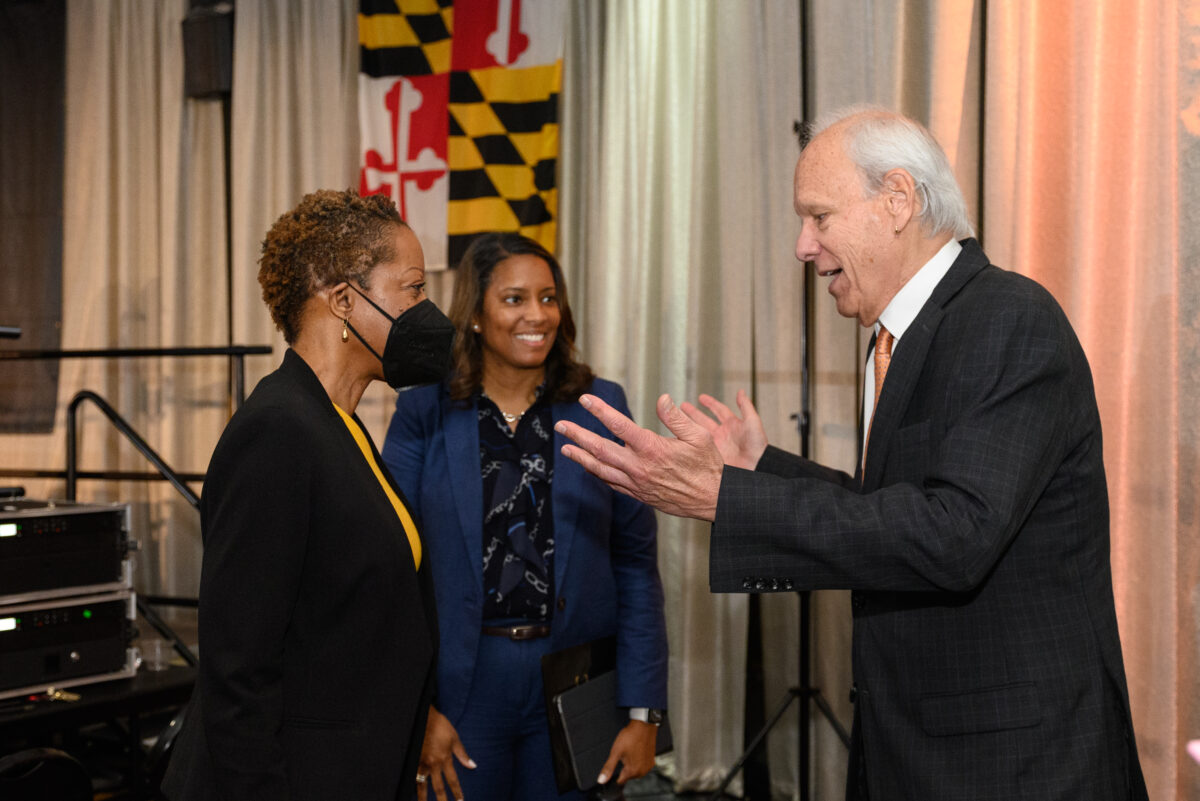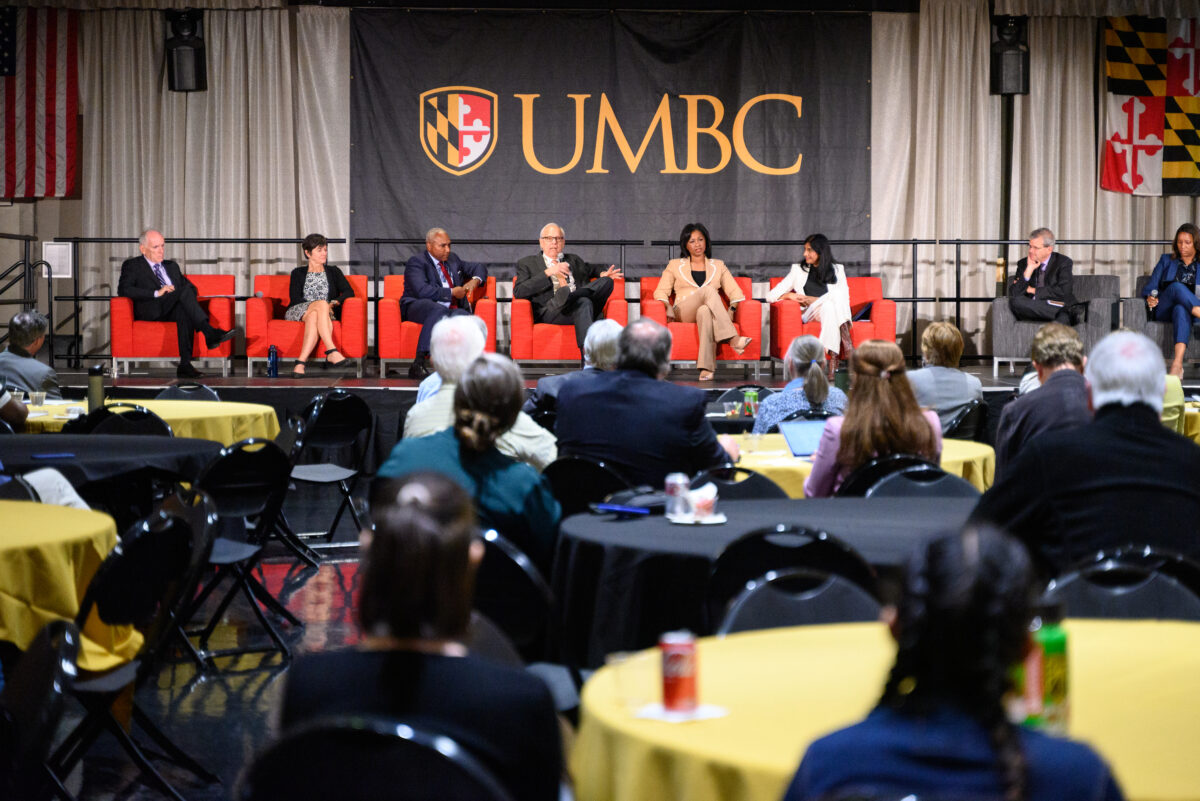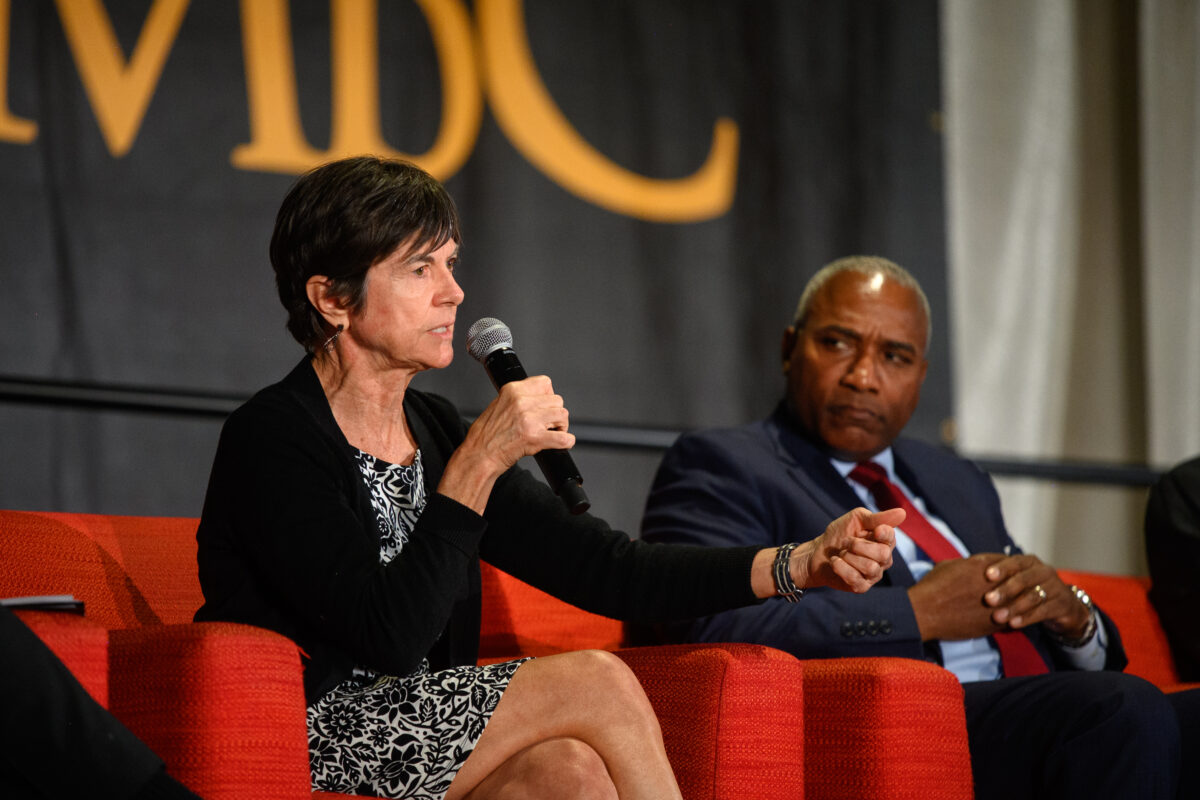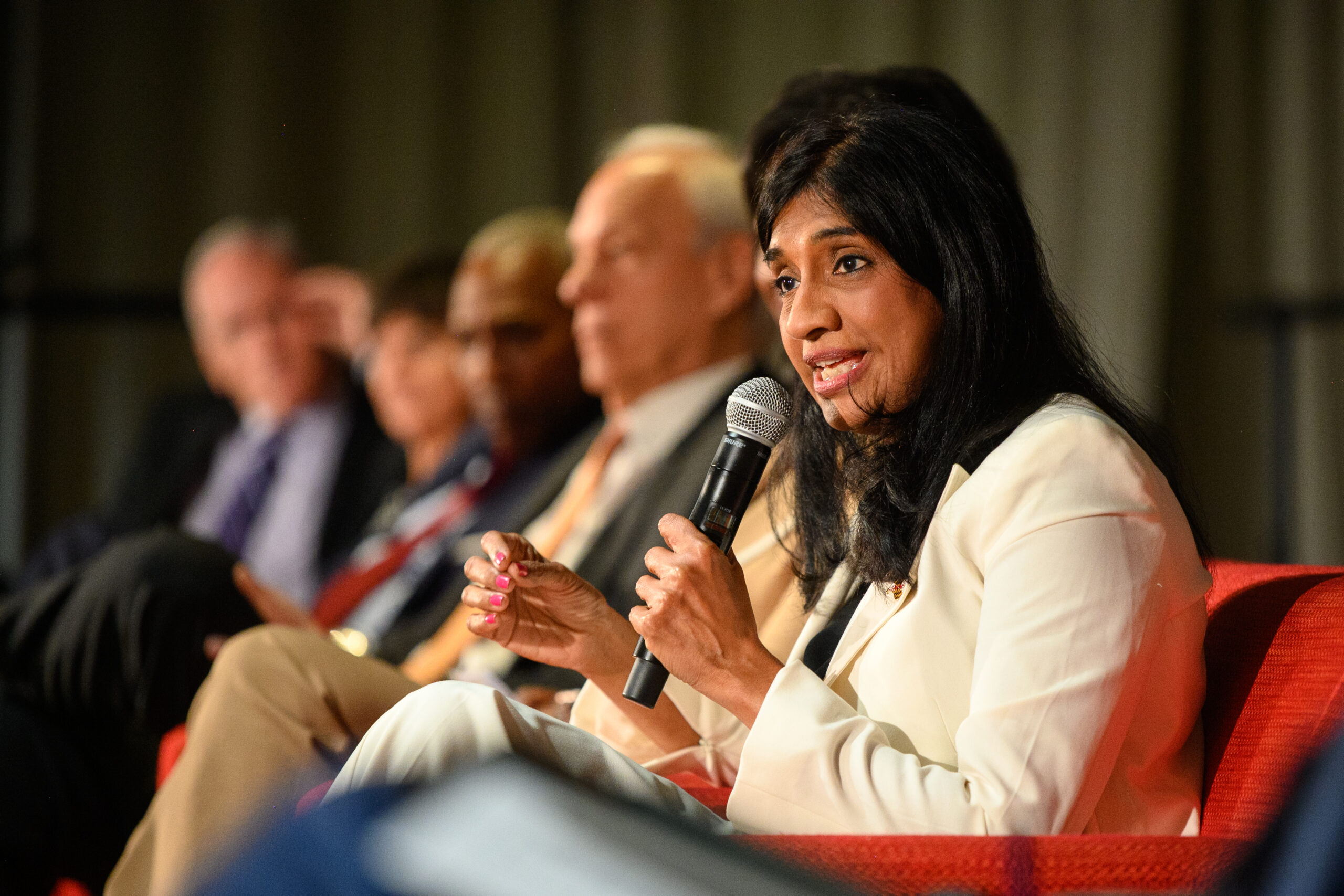This week, UMBC and Maryland Matters hosted state officials in Governor Wes Moore’s administration for a community forum on Maryland’s plan to address concerns related to climate change and the administration’s proposed green energy initiatives.
Candace Dodson-Reed ’96, English, UMBC’s vice president of government relations and community affairs, and Josh Kurtz, founding editor and reporter at Maryland Matters, moderated the panel discussion on the state’s climate policies. The forum was part of the Maryland Matters Climate Calling project, an initiative that began in 2021 that examines the threats of climate change in the state and the administration’s response.
“It will take all of us as we partner with government, universities, the private sector, philanthropy, media, and beyond to address this crisis,” said Dodson-Reed. “We know that universities play a huge role in this space.”
President Valerie Sheares Ashby agrees, sharing with attendees that UMBC “wants to be a true partner. We are not just a partner in research and scholarship, but also workforce development. It is critical to us that we are producing the next brilliant minds who will actually remain in the state of Maryland to do this work.”

Sheares Ashby referenced the work that UMBC students, faculty, and staff are already doing in response to climate change concerns, from long-term research, to a master’s program focused on work with communities around Baltimore’s Inner Harbor, to initiatives of the university’s Office of Sustainability.
“Environmental science and climate science are some of the least diverse of the sciences, yet it affects the broadest range of diverse human beings and communities,” said Sheares Ashby. “We have not fully brought all of the best and most diverse minds to the table, but here at UMBC, this is our focus.”
Maryland’s “bold” climate policies
Panelists included Lieutenant Governor Aruna Miller, who outlined the administration’s goals for addressing the climate crisis, pointing to the state’s “bold” solutions in Maryland’s Climate Solutions Act. The legislation is aiming to “reduce greenhouse gas emissions by 60 percent by 2031 and 100 percent by 2045,” says Lt. Gov. Miller.

“We see this as an opportunity to get into the green economy…it’s going to create jobs and create emerging technologies,” she shared with the audience. “We have goals that are bold and aggressive, but we need to be like that in order to be able to reach those goals.”
Lt. Gov. Miller was joined by Secretary of Commerce Kevin Anderson, Secretary of Planning Rebecca Flora, Secretary of the Environment Serena McIlwain, Secretary of Transportation Paul Wiedefeld, and Paul Pinsky, director of the Maryland Energy Administration.
Secretary Mcllwain made note of the “cross-disciplinary approach” of the Moore administration’s plan to implement their climate policies, saying, “We have to do this in a very comprehensive way or we will lose. We have to look at solutions that have multiplier benefits.”
Paul Pinsky explained the state’s goals of producing more offshore wind energy with the Promoting Offshore Wind Energy Resources Act (POWER). “To meet our goals…we’re going to need new technologies. It’s going to be a challenge, but Maryland is in a position to be a leader,” said Pinksy.
Secretary Rebecca Flora proposed more efficient ways to plan for the effects of climate change, such as implementing “more scenario planning so we can actually show what will happen in different scenarios.”
To do that, Flora suggests using more visualization tools. She made note of the UMBC research on display at the forum, saying, “we need that kind of talent out there to help communities understand what we’re saying.”

Connecting students with state leaders
UMBC students joined in the discussion by asking questions about the current state of climate change and the environment in Maryland, plans to protect vulnerable populations, and how these issues will impact future generations.
Sondheim Public Affairs Scholar Devanshi Mistry ’26, chemical engineering, asked the panelists about the state’s approach to agricultural and environmental policies. Mistry previously worked with local government in her hometown as a student representative for the Carroll County Board of Education, and shared her passion for vocalizing the needs and concerns of teens and young adults.
“Local government is a really big passion of mine and I’m hopeful that more students will continue to be engaged in what’s happening in our society. It was really impactful to hear directly from state representatives on important issues like climate change,” Mistry shared, following the forum.
UMBC’s Student Government Association (SGA) leaders also participated in the Q&A discussion and assisted with moderating the event. These leaders include incoming SGA President Musa Jafri ’24, political science, and SGA Director of Government Affairs Zach Starr ’23, public health.
For more on this topic, see coverage of the forum on Maryland Matters and a commentary by Dodson-Reed and Maggie Holland, associate professor of geography and environmental systems, on the role of universities in addressing climate change in Maryland, published prior to the event.
Tags: CAHSS, GES, MechE, PoliticalScience, PublicPolicy

